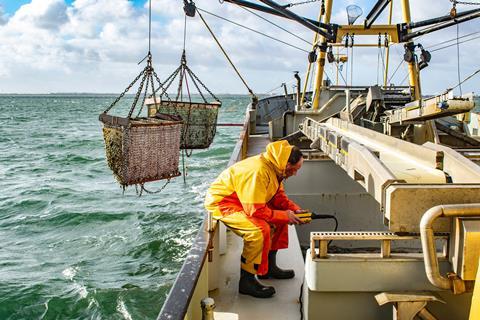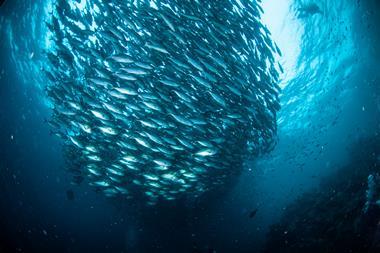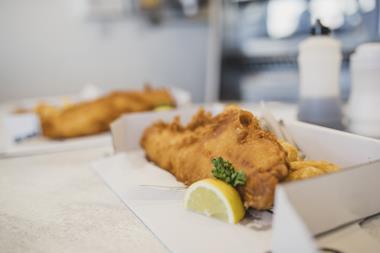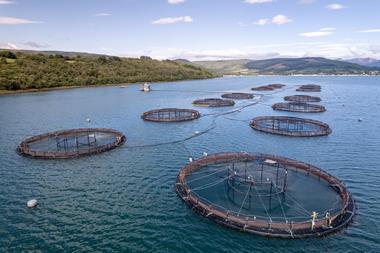
Britain’s fishing industry is launching a “groundbreaking” new pilot to fight exploitation of migrant workers at sea.
The two-year programme will aim to tackle labour exploitation on British fishing boats by setting out stricter working conditions guidelines and minimum pay standards for an industry that has been in the spotlight for years over poor labour oversight.
The pilot is being run in northeast Scotland by a coalition of labour rights groups including Focus on Labour Exploitation (FLEX), the International Transport Workers’ Federation and the Fair Food Program.
It will involve collaboration among several key stakeholders including the Scottish White Fish Producers Association (SWFPA) and the retailers Seafood Ethics Action Alliance - the consumer group whose members include major retailers and suppliers such as Tesco, Asda, Morrisons and Whitby Seafoods.
The worker-driven social responsibility programme is the first of its kind in Europe to introduce market-enforced mechanisms and systems to tackle growing concerns around labour abuse in the fishing sector.
Crucially, it gives the workers themselves agency to establish, monitor and enforce their own employment rights, amid widespread criticism of the seafood industry’s reliance on low-paid migrant crew.
The industry-wide pilot will address concerns such as those caused by the immigration “loophole” of the seafarer’s ‘transit visa’ – which means migrant fishers are not protected by UK employment laws when working on UK vessels just outside the 12-nautical-mile legal limit.
International Transport Workers’ Federation fisheries expert Chris Williams said: “ITF have campaigned to shut the transit visa loophole and been successful – the Home Office have admitted (in 2023) that transit visas used for crew fishing in UK territorial waters are an illegal route to employment, as we have argued for many years.
“The change to skilled worker visas is a positive and necessary step, but this does not cover vessels fishing outside UK territorial waters.”
Read more: Waitrose tackles abuse of overseas workers in fishing sector
Transit visas are meant for individuals who need to pass through the UK before heading outside the country and, under UK employment law, do not offer the same kinds of protections as skilled worker visas.
Human rights advocates have for years warned boats operating just outside British waters have misused the transit visa system in order to hire cheap overseas crew under loose labour regulations.
The pilot programme will fill in those legislation gaps by guaranteeing minimum standards on pay, rest hours and grievance procedures – which many workers claim they currently lack.
🎉📢BIG News!📢🎉@FocusOnLabour, @ITFglobalunion and @FairFoodProgram with @j_decker_sparks are delighted to launch Europe's first WSR pilot to tackle #labourabuse and #exploitation in UK fishing 🎣
— FLEX (@FocusOnLabour) January 9, 2024
Find out more: https://t.co/dKljGxlOpY
Press Release: https://t.co/2N7orYkcAj pic.twitter.com/xm8Bh8LzIO
Williams added: “This pilot project gives migrant fishers working on some of these vessels a chance for greater protection and improved conditions at work, as well as the ability to shape their own working conditions, despite the continued use of the seafarer’s transit visa to recruit them.
“We hope this pilot will be successful and expand over time to ensure all workers, regardless of their nationality or immigration status, are paid fairly and treated with respect for the difficult work they do.”
The first stages of the scheme involve outreach work with migrant fishers and active engagement with key industry stakeholders in two key ports in Scotland.
Employers and buyers are legally bound to adhere to the programme’s requirements, and will be audited by an independent council.
“It truly is a ground-breaking model, and we are excited to be bringing it to the UK to help restructure the power imbalances that exist in the fishing industry between worker and employer, and in particular safeguard and improve working conditions for migrant fishers who are a vital part of the UK’s fishing industry,” said FLEX CEO Lucila Granada.



















No comments yet